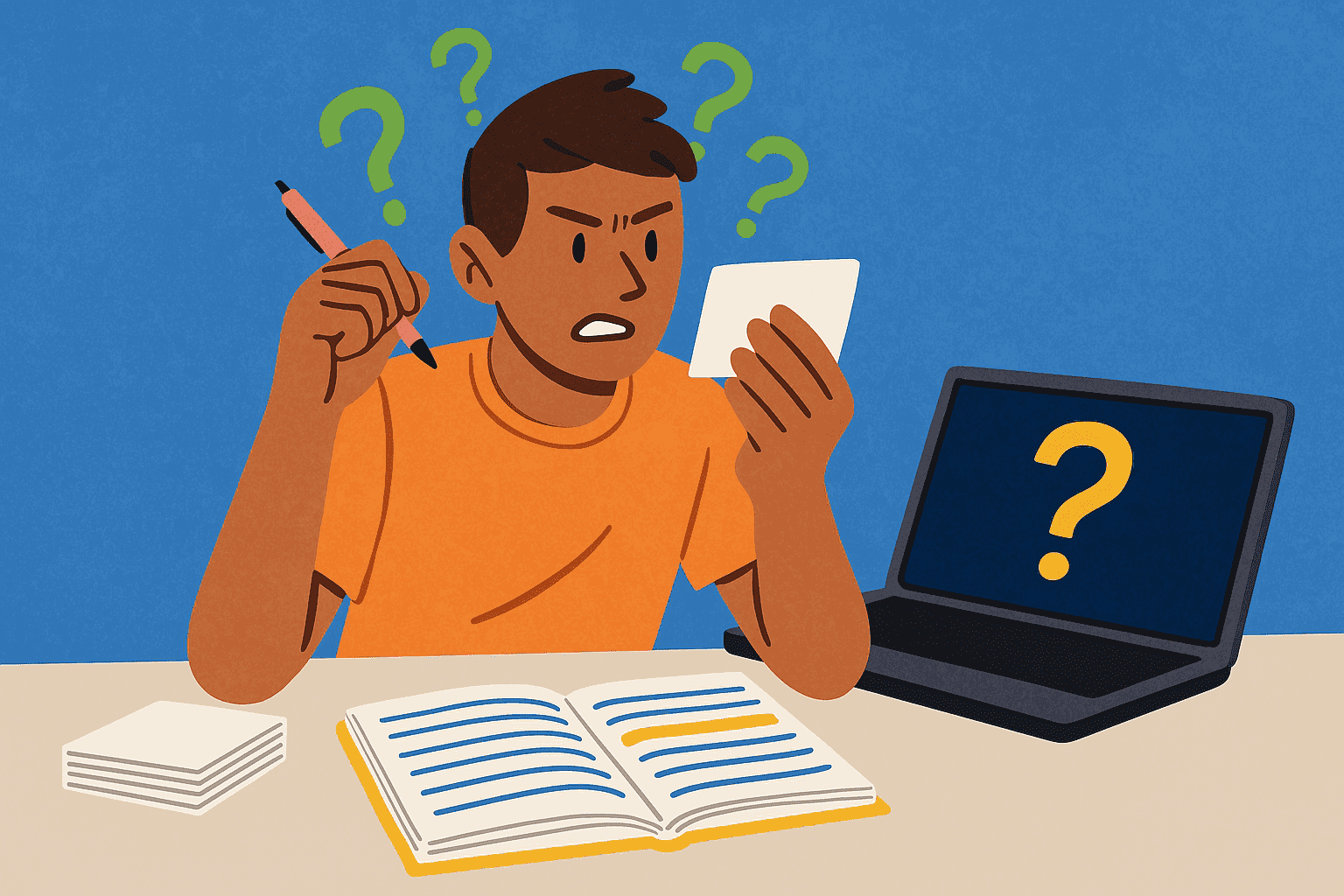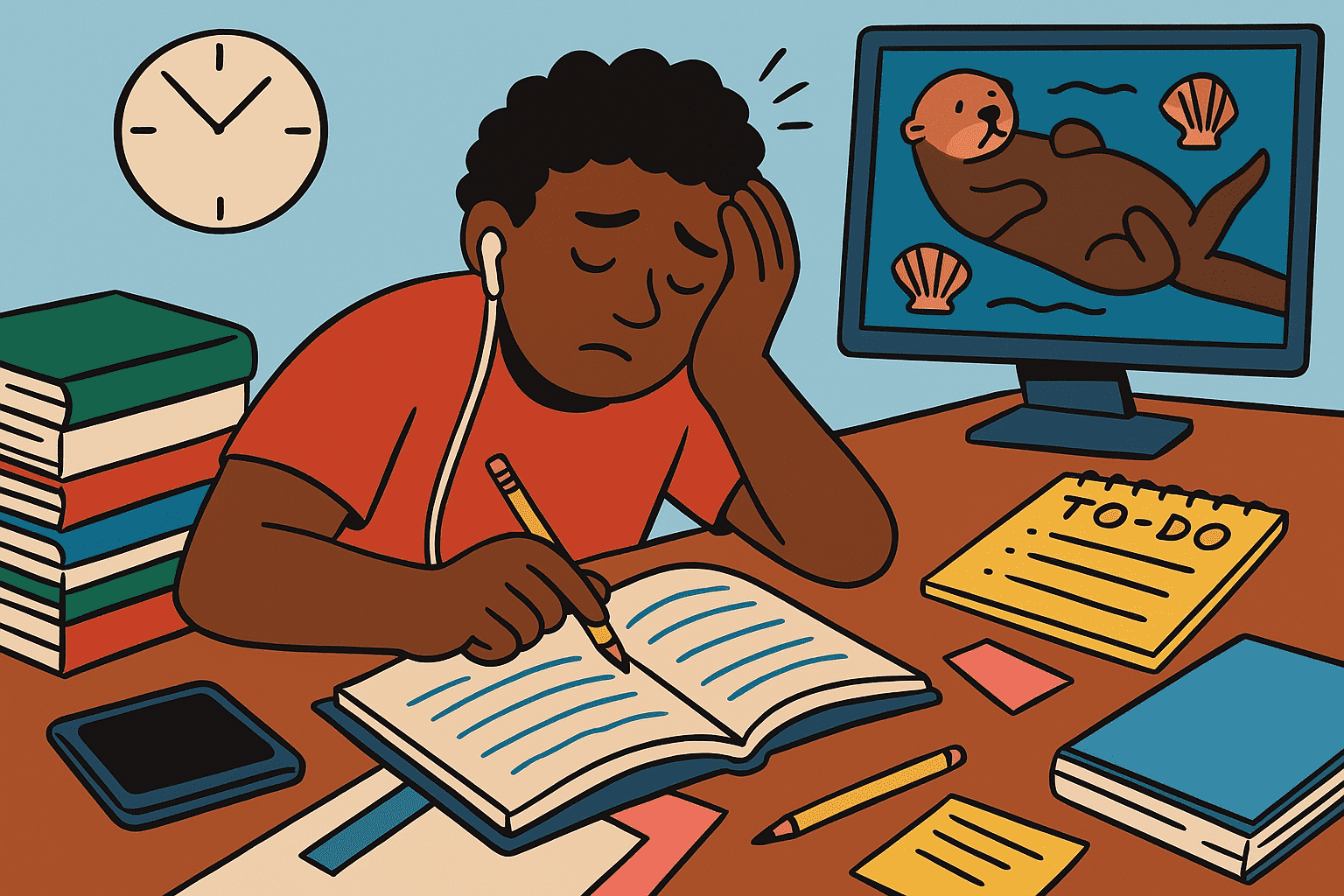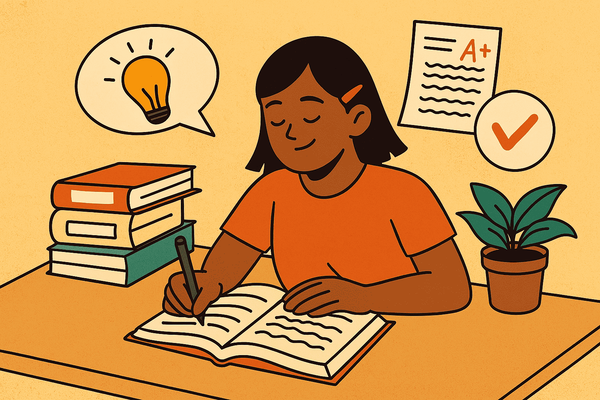Active Recall Study Techniques: How I Stopped Wasting Time "Reviewing"
As I delved into active recall study techniques, I watched my roommate Jake review his color-coded notes for hours. Every time you force yourself to recall something without looking at notes, you're strengthening the neural pathways to that information.

Last finals week, as I delved into active recall study techniques, I watched my roommate Jake review his color-coded notes for hours. He'd nod confidently at each page, occasionally highlighting something new.
Meanwhile, I sat on the floor surrounded by hand-scrawled index cards, actively quizzing myself and learning from every mistake.
Jake looked over at me sprawled on the floor. "Why are you making this so hard on yourself?"
Two weeks later, I got my A while Jake was signing up for a summer retake.
What separated our approaches wasn't intelligence or even time invested – it was how we engaged with the material. Jake was using passive review; I was using active recall. And that made all the difference.
Unlocking Memory: What I Learned About Active Recall Study Techniques
My freshman year, I studied like Jake – rereading notes, highlighting textbooks, and feeling accomplished when I recognized the material.
But recognition created a dangerous illusion of knowing.
It turns out our brains are lazy. When information feels familiar (like when you're rereading notes), your brain says, "I know this already!" and doesn't bother forming stronger neural connections.
That's why you can reread something five times and still blank when asked about it later.
I discovered that memory formation actually requires effort – specifically, the effort of retrieving information.
Every time you force yourself to recall something without looking at notes, you're strengthening the neural pathways to that information.
Think of it like this: passive reviewing is like watching someone lift weights, while active recall is actually lifting them yourself. Only one builds muscle.
The Blank Page Method That Changed Everything
My go-to active recall technique became what I call the "blank page method." After reading through my notes once, I'd put everything away and grab a blank sheet of paper. Then I'd write down everything I could remember about the topic.
The first time I tried this, it was humbling. I realized how little I actually knew despite "studying" for hours.
But identifying those gaps was precisely what I needed.
When I hit something I couldn't remember, I'd put a star next to it, finish my recall session, and only then check my notes to fill in the blanks.
Those starred items became the focus of my next study session.
What made this method so powerful was that it forced me to organize information in my own mental framework rather than just following the textbook's structure.
This created multiple pathways to retrieve the information later.
Flashcards With a Strategic Twist
Flashcards get a bad rap as basic memorization tools, but I discovered they're incredibly powerful when used strategically for active recall.
The key was creating cards that forced deeper thinking rather than simple fact regurgitation.
Instead of "What year did World War I begin?" (a basic recall question), I'd write "Explain three key factors that led to the outbreak of World War I" (which required understanding and connecting concepts).
I organized my flashcards into three piles:
- "Got it easily" (review once weekly)
- "Got it with effort" (review every other day)
- "Missed completely" (review daily)
This spaced repetition system ensured I was spending time where it actually mattered rather than reviewing material I already knew well.
Shepherd.study transformed this process for me. Instead of manually tracking which cards needed review when, the app's spaced repetition algorithm automatically prioritized cards I struggled with.
I could create cards directly from lecture slides or readings, then customize them to push for deeper understanding.
The "Teach It" Technique
One of my most effective active recall methods was simply teaching the material to someone else – or pretending to.
When my study partners weren't available, I'd explain concepts to an imaginary student, focusing especially on parts I found confusing.
Something magical happens when you have to articulate concepts in your own words – gaps in understanding become immediately obvious.
I started recording these explanations using Shepherd's note feature, which let me listen back and identify areas where I stumbled or used vague language.
Those problem spots immediately went onto my priority study list.
The difference between thinking "I understand this concept" and actually explaining it clearly is enormous. If you can't teach it, you don't truly know it.
Practice Testing: The Ultimate Active Recall
The most powerful active recall study technique I discovered was practice testing – creating conditions as similar to the actual exam as possible.
For my biology class, I didn't just answer the review questions; I created my own exam, timing myself under test-like conditions without notes or references.
The stress of the timer actually helped simulate exam conditions, making retrieval practice even more effective.
Shepherd.study's quiz generator became invaluable here. I could upload my lecture notes or readings and have it create challenging questions that tested application and understanding, not just memorization.
The AI tutor feature would give me Socratic-style hints when I got stuck, helping me work through difficult concepts without just handing me the answer.
Overcoming Active Recall Resistance
Let's be honest – active recall is harder than passive review. There were many times I was tempted to just reread my notes because it felt more comfortable.
What helped me push through was tracking my results. After using active recall for one exam and seeing a dramatic improvement in my grade, I was hooked.
The temporary discomfort of realizing what I didn't know was worth the confidence of truly mastering material.
I also learned to embrace the struggle. That feeling of effort when you're trying to retrieve information?
Cognitive scientists call it "desirable difficulty" – it's the sensation of your brain forming stronger memory connections.
What feels difficult in the moment is actually making the material more accessible later.
Building an Active Recall Routine
My current study system combines multiple active recall approaches:
- First exposure: Read/attend lecture and take notes normally
- Within 24 hours: Blank page recall to identify gaps
- Create targeted flashcards for concepts I struggled with
- Teach difficult concepts (to friends or my phone)
- Weekly practice tests under exam conditions
- Regular review of missed items using spaced repetition
This system takes the same amount of time as my old passive approach but delivers dramatically better results.
Instead of feeling vaguely familiar with everything but confident about nothing, I now truly master the material.
Active recall transformed studying from an anxious experience into a methodical process I could trust.
If you're tired of studying for hours without results, put down the highlighter and pick up a blank piece of paper. Your brain will thank you.



